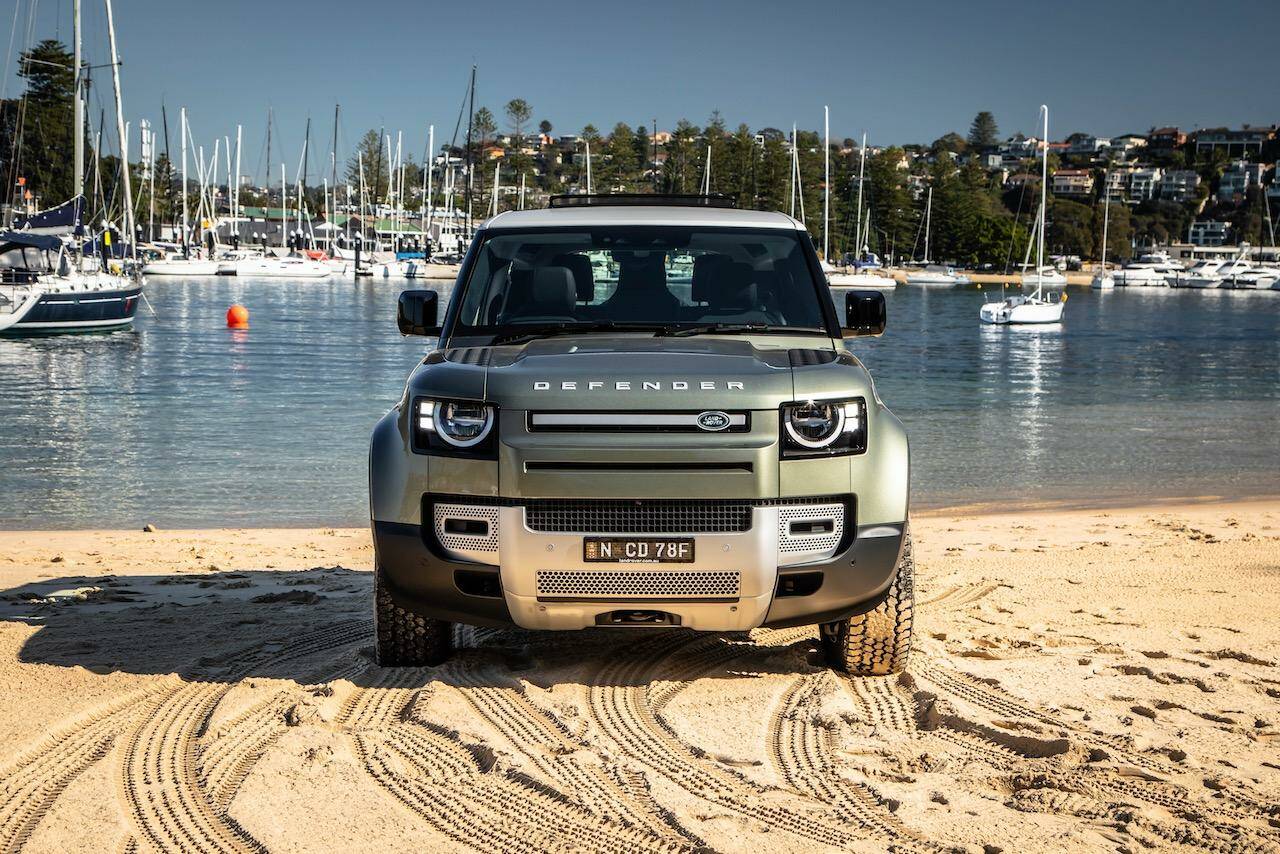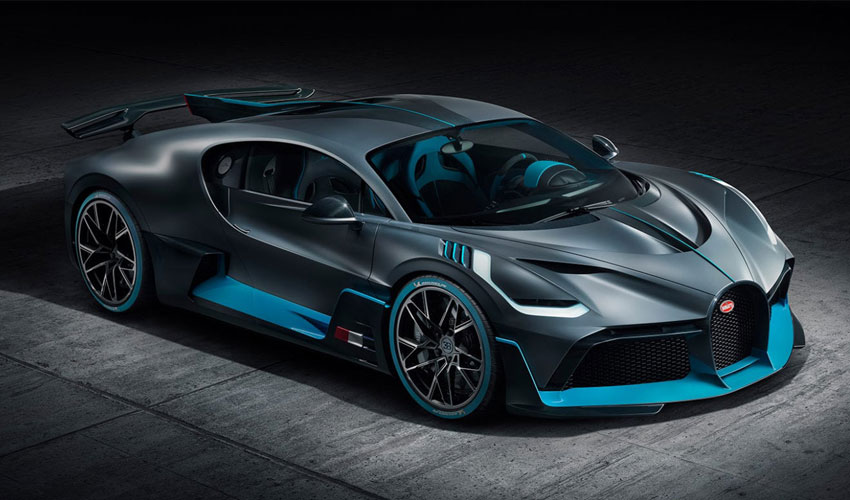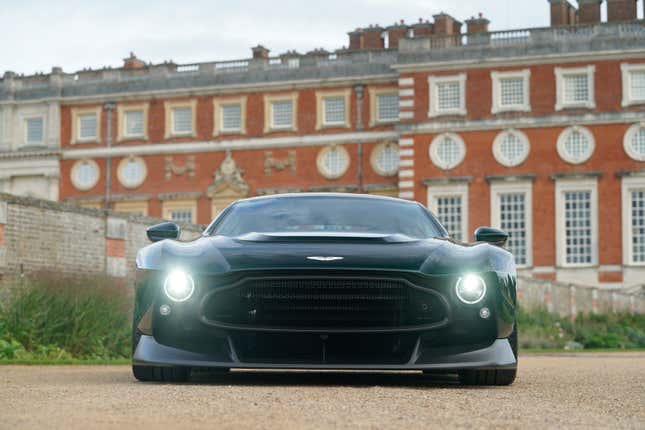2023 Range Rover Sport SE Would Rather Chill Than Thrill

From the April 2022 issue of Car and Driver.
Chipotle—or, as my family calls it, “Taco Bell with some book learnin'”—has an ingenious menu. There’s really only one dish, but the fast-food chain presents the basic ingredients in so many ways that a veneer of individuality disguises the homogeneity. The same can be said of Land Rover’s lineup, which stuffs the same fillings into different wrappers. You want a six-cylinder all-wheel-drive SUV? Have a Range Rover Velar, which looks like a smaller Range Rover Sport, which is a slightly smaller Range Rover, which is like a fancier Discovery, which is a more polished Defender. In this analogy, the Discovery Sport is a lifestyle bowl, and the Evoque is a quesadilla off the kids menu.
The Range Rover Sport is a staple of the company’s SUV menu. The prior generation enjoyed a nine-year run without aging into dowdiness, which is probably why Rover decided, for the 2023 redesign, to keep it looking pretty much the same. The new Sport’s headlights are squintier, but the overall shape is so similar to the previous model that you’d have to park them alongside each other to figure out what changed. The main giveaway is the new power-operated flush door handles, which contribute to the slick looks and slippery 0.29 coefficient of drag.
The Sport is slick to drive too, even in the lightly optioned SE trim. At $90,145 as tested, this is about as inexpensive a Range Rover Sport as you can build. The base SE comes with a 355-hp variant of the electrically supercharged and turbocharged 3.0-liter inline-six that appears in various other tunes and configurations elsewhere in the lineup (there’s a 395-hp flavor and a 434-hp plug-in hybrid). And while the straight-six’s output doesn’t exactly impress when BMW and Jeep are wringing 500-plus horsepower out of the same displacement, the engine is unfailingly buttery and refined. Goose the throttle at low rpm, and the supercharger delivers instantaneous boost, ramping up the torque until the turbocharger blows a gale. You hear a brief high-pitched whine at throttle tip-in, but that’s the only clue to the supercharger’s existence.
The Range Rover Sport doesn’t exactly lollygag when you crack open the throttle, but neither does it hustle the way you might expect based on its rakish looks. The Sport hits 60 mph in 5.7 seconds and covers the quarter-mile in 14.3 seconds at 96 mph. Those numbers are decent enough, but the Sport’s 5-to-60-mph time—7.1 seconds—is a better indicator of how it feels in real-world traffic, which is to say like a 5387-pound vehicle with 355 horse-power. In this case, “Sport” implies a diminutive (see Ford Bronco Sport, Mitsubishi Outlander Sport) rather than a sporting intent. At least the Sport SE delivers decent fuel economy, returning 25 mpg in our 75-mph highway test.
And it is a comfy place to dispatch some miles. Get the eight-speed automatic settled down in a tall gear and the straight-six snoozing at low rpm, and you could be convinced you’re driving an electric vehicle. It’s that smooth and that quiet. In fact, at 70 mph, you’ll hear a mere 66 decibels of interior din, which is verging on luxury-sedan levels of quietude. Some of the credit there goes to the active noise-cancellation system, which uses microphones in each wheel well to sample the sound boiling up from the road and then nullify it, like you’re riding around in a giant pair of noise-canceling headphones.
The standard air springs and adaptive dampers also further the impression of luxurious, untroubled heft, even with the 22-inch clodhoppers fitted to our test car. No matter how shattered the surface, the Range Rover Sport paves the road ahead with lightly toasted marshmallows. Switch to Dynamic mode, and the Pirelli Scorpion Zero All-Season tires can generate 0.81 g of grip on the skidpad, but doing so also introduces head toss and flinty ride motions. As with its powertrain, the Sport SE’s chassis is happiest when you’re not asking much of it. Which, we concede, is how most people use their cars most of the time.
Granted, other trims would push the Sport’s numbers closer to the realm of legit performance SUVs. The Stormer Handling package, unique to the $122,975 First Edition P530, brings active anti-roll bars and rear-wheel steering, and we’re sure that model’s BMW-sourced 523-hp V-8 makes for considerably sprightlier acceleration.
But our test vehicle is almost as close as you can get to a Range Rover Sport at its $84,475 base price. Options included the 22-inch wheels ($1450), a full-size spare tire ($500), and the Cold Climate package ($640), which heats the steering wheel, washer jets, and windshield. The heated steering wheel is available à la carte for $300 in case you find the heated windshield’s embedded filaments distracting, which some of us do. You can, of course, pad out the options list with thousands of dollars in other add-ons, but the Sport comes pretty thoroughly equipped in the first place. Without a buyer checking any options, the SE includes front and rear heated leather seats, a Meridian sound system, a panoramic sunroof, and adaptive cruise control with lane-keeping assist.
Whether the generous standard equipment amounts to an interior that befits an $84,000 Range Rover is up for debate. When most surfaces are hard and shiny—glass, black wood veneer, aluminum—you end up with a cabin that shows every microbe of dust and smudgy fingerprint. Other odd decisions: The USB-C port behind the flowing center console sits above a sloped plastic tray, so any phone put there will soon go flying toward one footwell or the other before forcibly unplugging itself. There’s also an inductive charging pad under the touchscreen, but it lacks a lip on the back edge, so you face the same dilemma on a different axis. Punch the throttle, and your phone will be on a spelunking journey in the center console, which is approximately the shape and depth of an elevator shaft since it shares between-the-seats real estate with another storage area hidden beneath the cupholders. And why would you need hidden storage under the cupholder? We’re law-abiding citizens, so we have no idea what you might put under there after, say, a day trip from Ohio to Michigan.
The Range Rover Sport’s role in the lineup has always been clear: It’s like the full-size Range Rover but more oriented toward performance on pavement. This particular trim, though, stakes its appeal on the relaxed luxury it delivers at its (relatively) affordable price. The Sport is the Range Rover for people who say “Never mind” when informed that the guacamole will be an extra $2.65. Is that really making a difference to your bottom line? Maybe not, but you’ve got to draw the line somewhere.
Counterpoints
Model-handsome design and nattily attired cabins make Range Rovers the preening fashionistas of their peer group. But beauty comes at a price, which, for the Range Rover Sport, is on the level of couture—whereas competitors from Mercedes-Benz, BMW, and even Porsche are more like ready-to-wear. With options, our base-trim test example is over $90K. And to think, the Sport was once the attainable Range Rover. —Joe Lorio
The new Range Rover Sport is a symbol of progress for the Land Rover brand, so why continue to include those redundant flip-down armrests? Of all the heritage design features to stick with, these seem the most irrelevant. The cushy center console is already nicely positioned for resting your elbow, and these flimsy, narrow appendages only block easy access to the seatbelts. At the very least, Land Rover should offer buyers an armrest-delete option on the spec sheet. —Drew Dorian
Specifications
Specifications
2023 Land Rover Range Rover Sport SE P360
Vehicle Type: front-engine, all-wheel-drive, 5-passenger, 4-door wagon
PRICE
Base/As Tested: $84,475/$90,145
Options: 22-inch wheels, $1450; Black contrast roof, $1000; Giola Green paint, $710; Cold Climate package, $640; LED headlights, $600; 22-inch full-size spare, $500; Natural Black veneer trim, $410; Wi-Fi with data plan, $360
ENGINE
supercharged, turbocharged, and intercooled, DOHC 24-valve inline-6, aluminum block and head, direct fuel injection
Displacement: 183 in3, 2996 cm3
Power: 355 hp @ 6500 rpm
Torque: 369 lb-ft @ 1750 rpm
TRANSMISSION
8-speed automatic
CHASSIS
Suspension, F/R: multilink/multilink
Brakes, F/R: 15.0-in vented disc/14.0-in vented disc
Tires: Pirelli Scorpion Zero All-Season
285/45R-22 114Y M+S LR
DIMENSIONS
Wheelbase: 118.0 in
Length: 194.7 in
Width: 80.6 in
Height: 71.7–74.2 in
Passenger Volume, F/R: 55/50 ft3
Cargo Volume, Behind F/R: 66/32 ft3
Curb Weight: 5387 lb
C/D TEST RESULTS
60 mph: 5.7 sec
1/4-Mile: 14.3 sec @ 96 mph
100 mph: 15.7 sec
130 mph: 33.2 sec
Results above omit 1-ft rollout of 0.3 sec.
Rolling Start, 5–60 mph: 7.1 sec
Top Gear, 30–50 mph: 3.9 sec
Top Gear, 50–70 mph: 4.5 sec
Top Speed (mfr’s claim): 140 mph
Braking, 70–0 mph: 187 ft
Roadholding, 300-ft Skidpad: 0.81 g
C/D FUEL ECONOMY
Observed: 16 mpg
75-mph Highway Driving: 25 mpg
75-mph Highway Range: 590 mi
EPA FUEL ECONOMY
Combined/City/Highway: 22/19/26 mpg
C/D TESTING EXPLAINED
Senior Editor
Ezra Dyer is a Car and Driver senior editor and columnist. He’s now based in North Carolina but still remembers how to turn right. He owns a 2009 GEM e4 and once drove 206 mph. Those facts are mutually exclusive.







